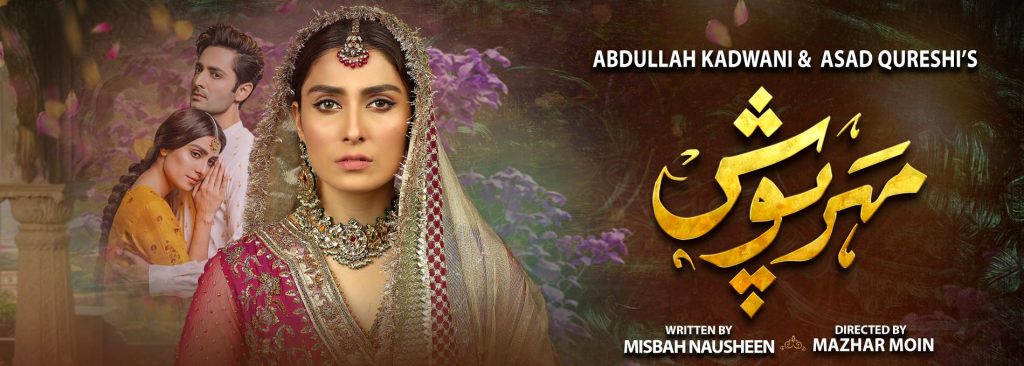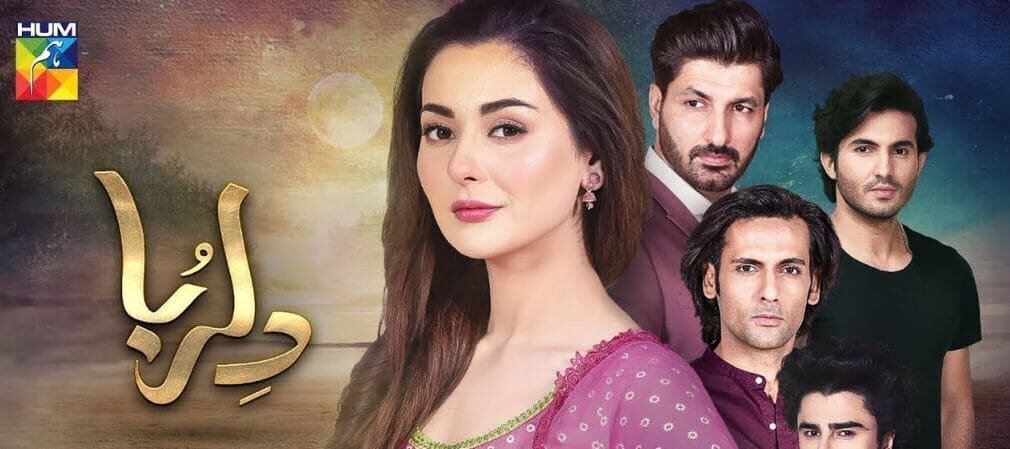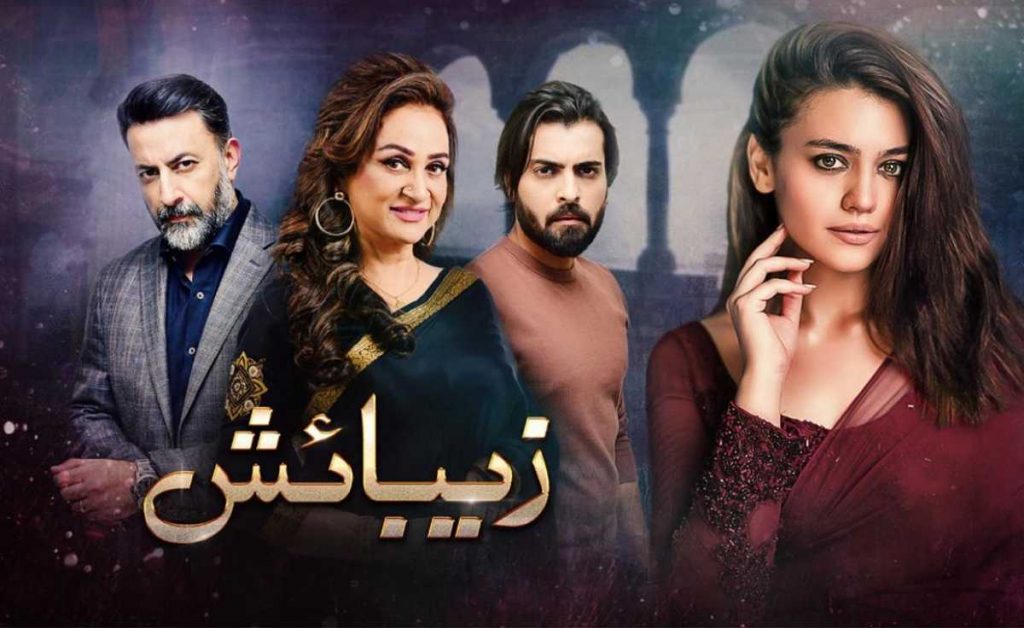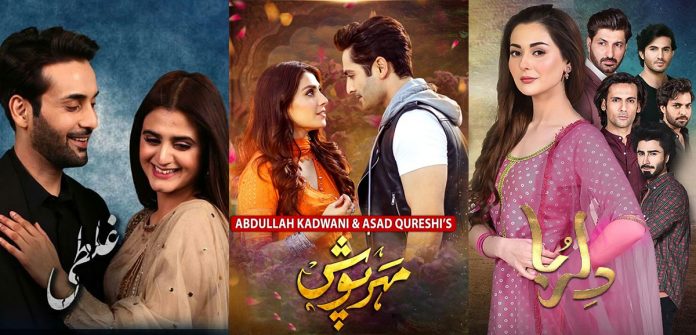Television is the biggest mass media medium in Pakistan and is consumed on a grassroots-level hence the content that is broadcasted on television is influential on the mindsets of the viewers. So, when it comes to topics that have serious socio-personal impacts on society, it becomes the medium’s responsibility to deal with them with extreme sensitivity and care.
Marriage is a sacred tradition of our culture and religion, cementing a lifelong bond of not just two individuals but also of two families. Similarly, rights related to marriage such as divorce and polygamy are a reality of our society that demand nuanced and educated discussions. However, our Pakistani dramas have trivialized these realities of the society for the sake of creating cheap thrills in the name of entertainment.
Sending out wrong messages
The concept of divorce has been dealt insensitively in some of the most cherished small screen blockbusters in recent history, and that makes the content more influential on the masses. It is an unfortunate development of the recent times that drama writers have made a buffoonery out of a life-changing decision of divorce. The phrase, “Talaq, Talaq, Talaq”, is used for frivolous reasons and is dramatized with background score and reaction shots for an intriguing watch without understanding the impact that it can have on the viewers.
The Ayeza Khan-Danish Taimoor starrer Meherposh had the main plotline where the female protagonist is divorced just a few hours after getting married because her husband suspected her of having an affair with some other man before she got married. The scene was played out with all the dramatic fanfare and the incident formed one of the central conflicts of the drama.
 Drama serial Jalan has been in the news for all the wrong reasons. This Aabis Raza directorial showcases a younger sister pressurizing her brother in law to divorce her pregnant sister to marry her.
Drama serial Jalan has been in the news for all the wrong reasons. This Aabis Raza directorial showcases a younger sister pressurizing her brother in law to divorce her pregnant sister to marry her.
In the drama serial Nand, the leading hero divorces his wife as his sister threatens him to attempt suicide if he wouldn’t divorce her. Obliging his sister, the hero divorces his wife in the heat of the moment. Unable to bear this, the female protagonists attempts suicide on the spot. However, when the hero reaches out to hold her he is stopped from touching her as he has now become her namehram since he divorced her. This entire situation is wrong on so many levels.
Lacking nuance
Religion and law have given the spouse a right to end a marriage via divorce. However, there are certain legal and religious obligations that are tied in the whole process which our dramas choose to either disregard or not present properly.
The recently concluded drama serial Dilruba had a plotline where the female protagonist seeks divorce from her husband because she falls in love with another man. While the drama does acknowledge the mandatory iddat period that follows a divorce, the characters don’t seem to pay any significant regard to it.
 The drama turned to soap, Mera Dil Mera Dushman, shows a father ordering his son-in-law to divorce his daughter as the young man was not emotionally loyal to his wife. The daughter wants to remain married to her husband but that doesn’t stop the father from demanding the end of the relationship. Marriage is not a trivial thing and the burden of making it work falls mostly on the two people who are bound in this relationship. Any third person interfering and demanding an end of marriage just sends out serious wrong messages.
The drama turned to soap, Mera Dil Mera Dushman, shows a father ordering his son-in-law to divorce his daughter as the young man was not emotionally loyal to his wife. The daughter wants to remain married to her husband but that doesn’t stop the father from demanding the end of the relationship. Marriage is not a trivial thing and the burden of making it work falls mostly on the two people who are bound in this relationship. Any third person interfering and demanding an end of marriage just sends out serious wrong messages.
If it’s not the parent then it’s an ex-lover manipulating a husband to divorce his wife by planting seeds of doubts in their mind. Half of Dil e Gumshuda‘s story was dedicated to this plot.
No one is spared
The most ridiculous thing is that no character is spared from having to face divorce. Be it young couples barely three weeks into marriage or old couples having spent decades together, our Pakistani drama serials can drop the ax called “divorce” on anyone’s neck.
In Zebaish, a 55-year-old lawyer divorces his wife as he marries his late employee’s wife. The reason? The man wasn’t happy that his wife was busy with her career and didn’t give him the domestic attention that he craved. So, he divorces her because his second wife asked him to.
 Yasir Nawaz’s Jannat Se Nikali Hui Aurat starring Sajid Hassan and Samina Peerzada was based on how, in a fit of impulsive anger, a man divorces his wife, and the elderly couple is left to bear the consequences of this action. Other dramas like Kashf and Bikhray Moti have characters who are the parents of the protagonists, threatening to divorce their wives if they do not display unconditional obedience to them.
Yasir Nawaz’s Jannat Se Nikali Hui Aurat starring Sajid Hassan and Samina Peerzada was based on how, in a fit of impulsive anger, a man divorces his wife, and the elderly couple is left to bear the consequences of this action. Other dramas like Kashf and Bikhray Moti have characters who are the parents of the protagonists, threatening to divorce their wives if they do not display unconditional obedience to them.
Any drama done right?
Ghalati starring Hira Mani and Affan Waheed was based on the concept of divorce. The drama intended to show the reality of the society where just one word repeated thrice can end a relationship that is meant to last a lifetime. While the drama’s intentions were in the right place, the way it was executed definitely left a bad taste in the audience’s mouth.
The female protagonist is forced to face the humiliation of being divorced for different reasons. Her husband divorces her in a fit of anger, after being pressurized by his mother, or just because he doubts that she is having an affair with some other man. But to add insult to the injury, the man refuses to acknowledge that he has divorced her thrice and wants to continue having a relationship with her, much to the female protagonist’s disgust.
 The drama explored the complex process of how an actual divorce takes place but the melodramatic twists and conflicts took away from the actual lesson the drama wanted to impart.
The drama explored the complex process of how an actual divorce takes place but the melodramatic twists and conflicts took away from the actual lesson the drama wanted to impart.
Final word
The concepts of nikaah and talaaq both demand extreme sensitivity and nuance when it comes to portraying them onscreen. Unfortunately, our Pakistani dramas have trivialized them both. It is already rare to find a happy marriage in Pakistani dramas that are based on mutual love and respect. Adding in the casual divorces that happen within seconds is just sending out a message that the institution of marriage is doomed.




